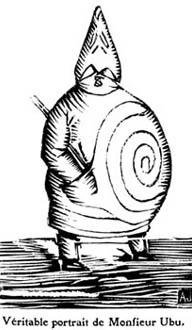User Login |
VOX (p)Opera SaturdayVOX Opera Excerpts of new operas composed on seed grants. The setup (no sets or costumes) draws attention to the music: orchestra on-stage, singers arranged with chairs and music stands on either side of the conductor, the VOX logo and video clip introductions are projected onto a screen at the back of the stage before each piece. Our Giraffe - Cartoons and humorous interviews (paraphrasing Charles Flowers referring to Sorrel Hays, "She's the composer - if she wants to have the chase sound like an Amtrack wreck, that's her prerogative") set the stage. Our Giraffe tells the story of Zarafa, a gift from the Ottoman emperor: based on the true story of the first giraffe to visit France. Fantasiaesque musical jungle-scapes. The opening song introduced Western modes of scientific inquiry, arrogance, and awe in the persons of Dr. Monteur, who exhibits the giraffe, and an astronomy student whose observations verge on the spiritual. The singer portraying Zarafa wore gold and tied her flaxen hair into twin buns reminiscent of a giraffe's fur-covered horns. Throughout the piece she blinked with curiosity and flicked her tongue. Though her lyrics consisted only of animal utterances, her duet with Minette, the Frenchwoman in love with Zarafa's keeper, demonstrated the intimacy that two voices mingling can convey. A very lively piece! Eleni - A melodrama based on Nicholas Gage's 1983 book of the same title, which tells the story of the exportation of children from a beleaguered Greek village to communist camps, and one woman's resistance, during Greece's Civil War. A very moving film showing documentary photographs introduced the piece. Musical dramatization proceeded directly from the content. Most poignant was the singer portraying a young boy--himself a young boy, surrounded by adults twice his size and musical instruments conveying overwhelming violence. The Mortal Thoughts of Lady Macbeth - As an intimate portrait of fictional violence, the matter-of-fact presentation of this piece (well-dressed people on a well-lit stage) fell somewhat short of the atmosphere called for. Lauren Flanigan as Lady MacBeth nonetheless strove to imbue her performance with passion and personality. The juxtaposition of Lady Macbeth's inner machinations and ultimate madness with the rhythmic, impersonally wicked intonations of the witches presented an interesting contrast, but seemed to be lacking something as a sole avenue of operatic exploration. The Officers - A comical, discordant opera composed of a classical music framework populated with notes from modern life, including telephone rings, answering machines, airport security notices, and post-industrial social facades. Mister F is a sociologist studying modern spirituality who travels with his girlfriend Simile, a woman who is remarkably similar to many other women yet unique in her position in Mr. F's life. Throughout the excerpts, Mr. F is confounded by an uncooperative questionnaire subject, subjected to tourism and airline safety, and outraged to find that Simile has mistaken another man for himself. This cacophonous selective mirror of reality manages to be both amusingly clever and sympathetic to its simplistic characters who might reflect the surface personalities of people you might meet. Dice Thrown - Based on the Mallarme poem "Un Coup de des jamais n'abolira le hasard," which is written musically, words chosen by sound to dance across the page, and concerns chance, Dice Thrown uses a computer program to randomly arrange the order, pitch, and duration of the individual scores that compose the opera. Two permutations of a fifteen-minute excerpt were performed to demonstrate this effect. Expecting something jangling and jarring after the purposefully unharmonious Officers, the first performance of Dice Thrown was instead surprisingly and powerfully congruous. Melissa Fogarty sang the vocal component while strings, winds, percussion, etc. rose and fell in counterpoint, diversion, and accompaniment. The effect was both random and organic, similar to amplified sounds/music of microscopic pond life. The instrumentation seemed to represent the sound of thought, the brainwaves of the poetry itself, surrounding the voice which sometimes reacted to it, sometimes seemed to conjure the reverberating sound. The second permutation was supernatural in contrast. While Fogarty's singing had been the centerpiece of the first performance, a wave of instrumentation drowned her out in the very first bar of the second. Giving prominence to the higher register, with trills and screeches, this transformation from rich harmony seemed to evoke the unreality of Alice or the Red Queen entering Wonderland. Rather than placement within the self, within the mind, there was now profound distance between audience and voice, voice and orchestra. Fogarty's expressive reactions to the music around her were now a distraction from the overall sound. A fascinating experience.
categories [ Poetry Reviews ]
login or register to post comments | printer friendly version
|
